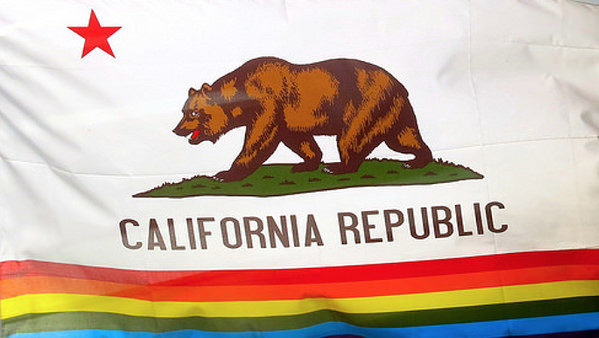There has been a lot of talk about Calexit since Donald Trump ascended to the presidency.
While political realities make an amicable divorce between the United States and California pretty unlikely, it is interesting to consider the economic ramifications of a split.
The $64,000 question is: could California stand on its own as an independent republic?
Talking to the average person on the street about California secession, the conventional wisdom seems to be that the Golden State depends heavily on the federal government and would have a difficult time standing on its own. Most Americans think California gets large amounts of money from Washington D.C. They also think of the state’s massive welfare system and deep indebtedness as barriers to independence.
The truth is the exact opposite.
California ranks as one of the least dependent states in the Union. The state sends far more money to the federal government than it gets back.
According to an article in the Sacramento Bee, the feds collect about $370 billion from California taxpayers each year, and spend $334 billion in the state.
This does not count the state’s proportionate share of defense and other overarching activities.
Theoretically, the state could make up for the loss in federal funding through a proportional increase in state taxes and Californians would come out ahead.
This is primarily a function of the size of California’s economy. Based on GDP, California ranks as the sixth largest economy in the world, just ahead of France and behind the United Kingdom. The state’s economy grew by 4.1 percent in 2015, compared with 2.4 percent growth for the rest of the country.
Based on size alone, it’s pretty clear California’s economy could stand on its own. The Sacramento Bee compared the state with Canada to provide some perspective.
“Canada has 36.3 million residents to California’s 39 million, but its $1.6 trillion economy is 38 percent smaller. Its federal budget of $317 billion is about 50 percent higher than California’s state spending, but twice as large when federal funds are excluded from California’s budget.”
But that doesn’t mean there aren’t a lot of question marks.
For instance, how would California handle national defense? It’s one thing to forgo federal funding. It’s another thing altogether to build a modern military. Would it depend on the U.S. for protection? Or perhaps Canada? Would it try to shoulder the expense of defense? Or maybe just do without?
Another question would be how to handle all of the federal infrastructure in California. Would the state have to pay Uncle Sam for all of the national parks, military bases and other federal facilities in the state? Could it afford the cost?
Of course, there are two sides to this equation. Calexit would certainly have major ramifications for the rest of the U.S. as well.
An Entrepreneur article highlighted some of the likely effects of California secession on the rest of the United States. The possible ramifications included higher food prices, tax hikes due to the loss of federal revenue, a weakened dollar and an overall recession.
But all of these negative consequences assume worst-case scenarios. Consider the argument for higher food prices:
In fact, costs for fruits and vegetables would skyrocket because:
But in fact, the U.S. and California governments could easily negotiate friendly trade terms with low or even no tariffs.
When you step back and look at the possibility of Calexit objectively, two things become clear.
- There are a lot of unknowns. We really can’t say for sure what the overall impacts would be. There would likely be both positives and negatives.
- Most of the big questions are political, not economic.
California could certainly stand on its own. The U.S. could certainly let the state go. If the two governments cooperated and split on friendly terms, the negative impacts could be minimized and both economies would likely flourish in the long run.
But that’s probably wishful thinking. Politics, by its very nature, tends to be uncooperative and adversarial. Insert government into the picture and the likelihood of smooth sailing fades away.
Ultimately, Calexit is a political question - not economic. Markets don’t care about borders. They function just fine across political lines on a map if the politicians let them. Unfortunately, politicians don’t usually let them.
RELATED:
• With A New Republican President, Can We Expect Another U.S. Recession?
• Trump Takes Action on Trade: Pulls US Out of TPP, To Renegotiate NAFTA
• Only Capitalism, Not the President, Can Save the World








